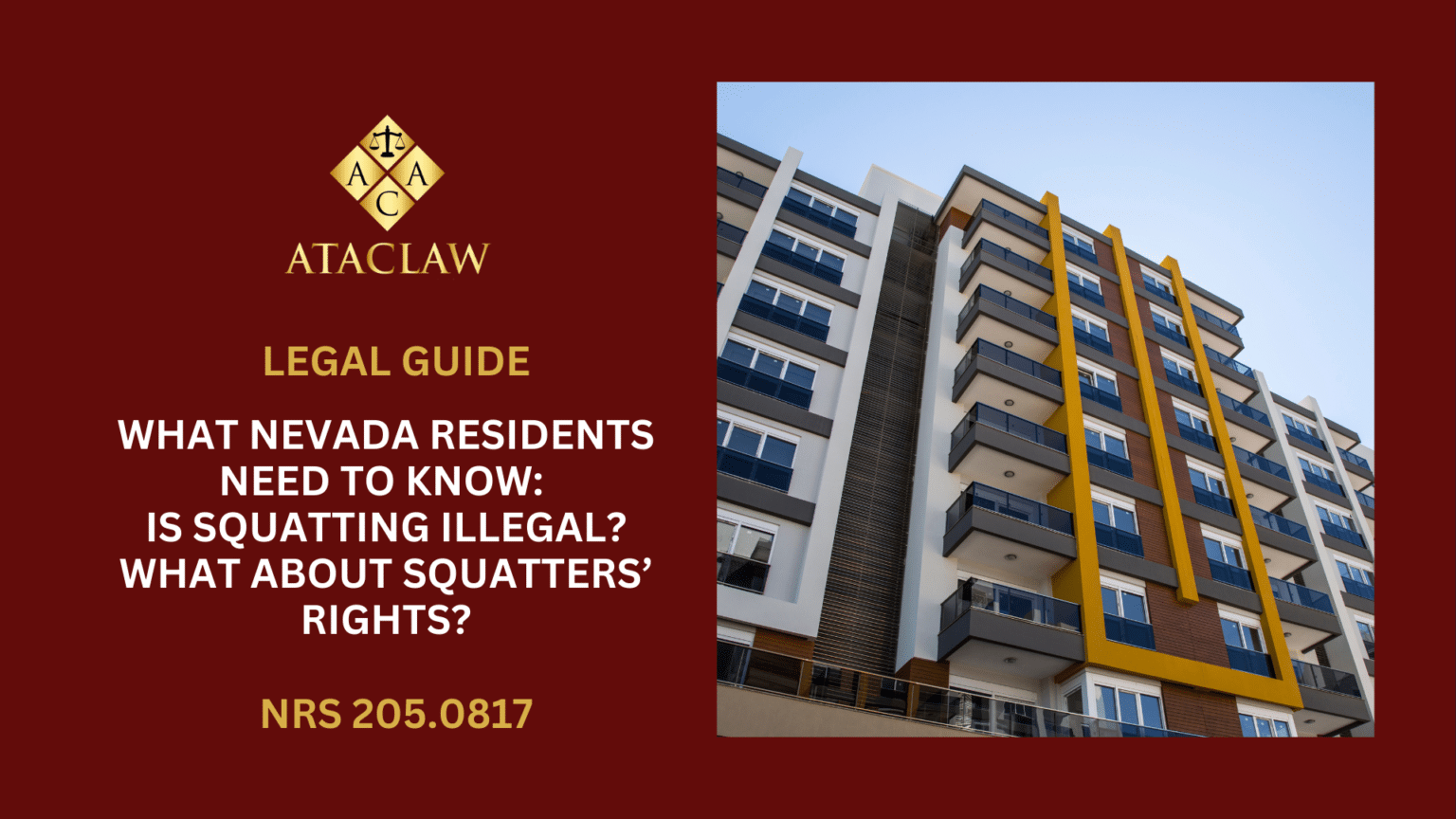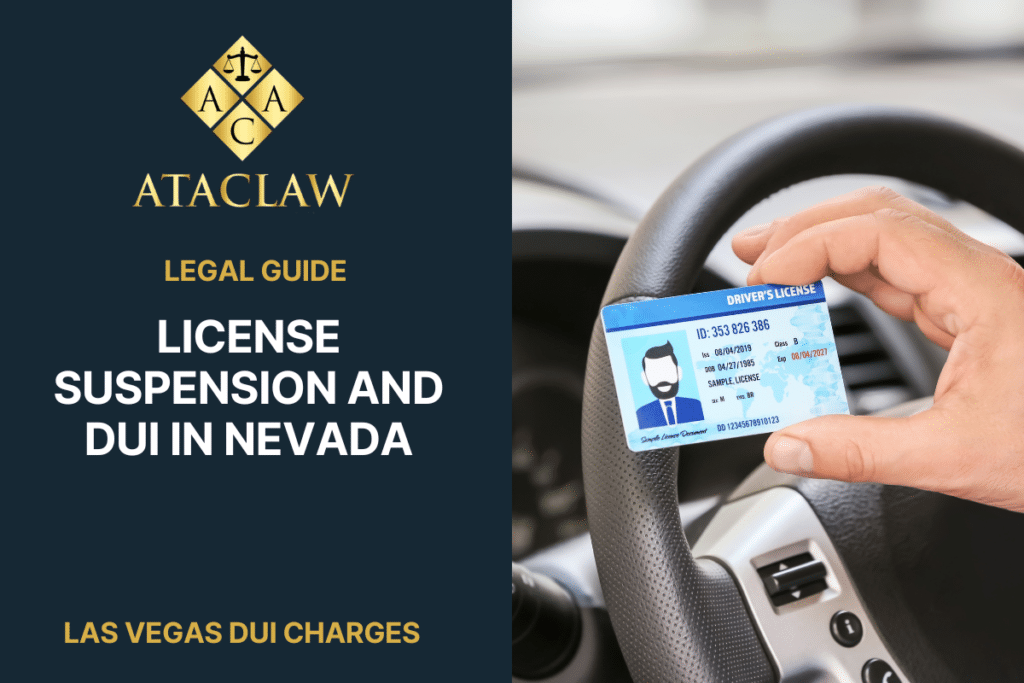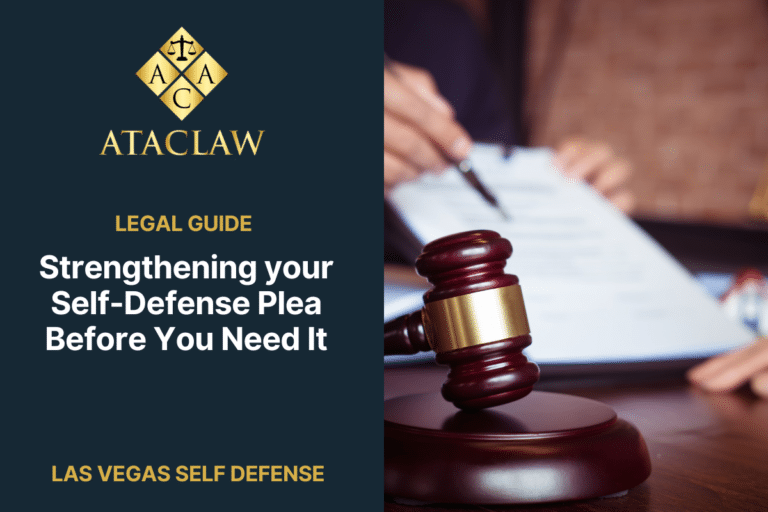Squatting, legally termed “unlawful occupancy” in Nevada, refers to the act of residing in an otherwise vacant or uninhabited home without the owner’s or their representative’s express permission. Nevada statute NRS 205.0817 classifies squatting as a criminal offense, highlighting the importance of understanding property rights and the legal stipulations surrounding unused dwellings.
Is it Legal to Live in an Empty Home Without Permission in Nevada?
Nevada’s laws concerning the occupancy of empty properties, specifically those found in NRS 205.0817, label “squatting” or occupying someone else’s vacant house without authority, as an illegal act. Referred to legally as ‘unlawful occupancy,’ it renders living in a vacant dwelling without the consent of the rightful owner or their agent a prosecutable crime.
The rule states:
- Unlawful Occupancy Defined: Any individual who resides in a dwelling deemed vacant with the awareness or suspicion that they lack the approval of the rightful property owner, or their authorized agent, is committing an illegal act.
- Evidence of Permissible Residency: Unless the person can present a legitimate rental agreement, notarized or authenticated by a legally recognized agent of the owner equipped with a property management authorization, it is assumed that the individual is residing sans approval.
- Legal Ramifications: A conviction for this offense typically results in a gross misdemeanor. However, those with three or more such offenses are at risk of being charged with a Category D felony, which carries far more severe consequences.
- Prior Convictions Impact: Those with past verdicts of similar unlawful actions are presumed to be aware of the illegitimacy of any claimed lease agreement, as well as the fact they do not have residency permission from the property owner or their agent.
In Nevada’s legal framework, squatting can lead to punishments such as a 364-day jail term and monetary penalties up to $2,000. Repeat violators may face up to four years in state penitentiaries and fines reaching $5,000. Interestingly, the state’s statutes do not demand proof of forced entry for one to be considered a squatter. A mere act of taking up residence without express consent is enough.
Squatters are presumed to be occupying without permission, barring evidence of a valid leasing document, which must include notarization or a property manager’s signature, along with the contact details of the property’s owner or their agent.
Importantly, it should be noted that this particular statute applies solely to residential properties, not commercial structures or vehicles. Individuals who occupy non-residential properties may be subject to different charges such as trespass or burglary.
How Does Las Vegas’s Ban on Homeless Encampments Influence Squatting Activities?
In a move aimed at addressing homelessness, Las Vegas has implemented a regulation that renders camping or sleeping on the streets of downtown a misdemeanor offense, but with a notable exception. This sanction applies only if there are vacant beds available in shelters. Violators of this law face severe penalties, including:
- A potential jail time of up to six months, and/or
- Fines reaching up to $1,000
While the ordinance directly targets camping or sleeping in public spaces rather than squatting in unoccupied homes, it inadvertently pressures the homeless population. Given that the streets are not considered “dwellings,” the ban doesn’t technically pertain to squatting. Yet, its implementation might lead to unintended consequences by pushing individuals seeking shelter towards occupying vacant properties as a refuge, thereby potentially increasing squatting incidents.
What Legal Rights Do Squatters Hold in Nevada to Claim Property?
In Nevada, individuals occupying property without formal authorization—commonly known as squatters—may have a legal avenue to claim ownership under certain conditions. This process, known as adverse possession, requires the squatter to reside on the property continuously for a span of five years. Additionally, proof that property taxes have been consistently paid throughout that duration is essential.
Securing property rights through adverse possession is relatively uncommon, primarily because property owners frequently monitor their land and often take action to remove squatters before the five-year threshold is met. Property owners are inclined to safeguard their interests and prevent such claims by maintaining regular oversight and addressing any unauthorized occupancy swiftly.
What are the Legal Consequences of Squatting in Nevada?
In the state of Nevada, the act of squatting — occupying an empty or uninhabited dwelling without the owner’s permission — is considered a serious offense. Individuals found guilty of squatting face significant penalties, emphasizing the state’s stringent stance on protecting property rights.
For first-time offenders, squatting is categorized as a gross misdemeanor, carrying with it substantial punitive measures. Those convicted can expect:
- A jail sentence that may extend up to 364 days; and/or
- Financial penalties amounting to as much as $2,000.
The legal ramifications intensify with repeated violations of Nevada’s squatting laws. Persons with a history of three or more convictions under NRS 205.0817 find themselves facing charges of a Category D felony. The escalated charges reflect the increased severity of the offense and the state’s commitment to deterring repeat offenders. Convicted individuals in this category may be subjected to:
- A prison term ranging from one to four years within the confines of a Nevada State Prison; and/or
- Monetary fines up to $5,000, the exact amount being at the discretion of the presiding judge.
These penalties underscore the gravity with which Nevada treats the unlawful occupancy of residential properties. The state’s legislative approach aims not only to punish but also to deter individuals from encroaching on others’ properties without consent.
Property owners feeling aggrieved or those facing accusations related to squatting should seek competent legal assistance. ATAC LAW is adept at handling the complexities of Nevada property laws, ensuring both the protection of property rights and the provision of a robust defense for those accused of squatting.
How Does Squatting Impact Your Immigration Status in Nevada?
The relationship between squatting charges and deportation risks for non-citizens in Nevada is not straightforward. Those facing charges for unlawful occupancy are advised to consult with a legal expert promptly.
What are Effective Legal Defenses Against Squatting Charges in Nevada?
Facing charges for squatting in Nevada can be daunting, but the right defense strategy can significantly affect the outcome. Based on the specifics of each case, several defenses can be effectively employed to counter accusations of illegal dwelling occupancy. Here are some of the most common defense tactics:
- Non-Dwelling Location: Arguing that the space occupied does not meet the legal definition of a “dwelling” as outlined in Nevada law serves as another potential defense, focusing on the nature of the property in question.
- Belief of Permission: Another viable defense is that the defendant genuinely believed they had the consent of the property owner to live in the property, which could be due to a misunderstanding or miscommunication.
- Consent from the Property Owner: The accused may argue that they had explicit permission from the property owner to reside in the dwelling, nullifying the basis of the unlawful occupancy charge.
- Non-Residential Use: If the defendant can demonstrate that although they spent time in the property, it was not used as a living space, this distinction could be grounds for dismissal of squatting charges.
Furthermore, contesting the legality of evidence obtained by law enforcement plays a critical role in defending against squatting charges. If it’s proven that the police conducted an unlawful search of the premises, the defendant can request the court to exclude (“suppress”) the evidence found during such a search. Successful suppression often leads to the dismissal of charges due to insufficient evidence.
Evidence pivotal in cases concerning NRS 205.0817 includes, but is not limited to:
- Communications records (e.g., phone calls, emails, text messages) between the property owner and the alleged illegal occupant.
- Testimonies from witnesses.
- Recordings from video surveillance systems.
Can You Seal a Squatting Conviction Record in Nevada?
In Nevada, individuals with squatting convictions may have the opportunity to seal their records, though the ability to do so hinges on compliance with specific waiting periods determined by the severity of the charge:
- Gross Misdemeanor: For those convicted of unlawful occupancy as a gross misdemeanor, the record can be sealed two years following the conclusion of the case.
- Category D Felony: If the conviction is classified as a Category D felony, the record can be sealed after a five-year waiting period post-case conclusion.
- Case Dismissal: If the squatting charges lead to a case dismissal without a conviction, the individual can seek to have the record sealed immediately.
What Legal Consequences Can Squatters Face in Nevada?
In Nevada, individuals identified as squatters can be subject to a range of legal charges, depending on the specifics of their activities on the property in question. Authorities consider several types of violations, each with varying degrees of severity:
- Trespass
Trespassing encompasses entering or staying on someone else’s property either with the intention to cause annoyance or commit a crime, or after explicitly being warned not to. Classified as a misdemeanor, trespassing indicates unlawful presence on property without engaging in more serious criminal intentions like theft or assault. - Housebreaking
This offense involves forcefully entering a residence that is currently unoccupied or vacant, with the intruder fully aware that they lack the consent of the property’s owner and with the intention to make it their residence. A first occurrence of housebreaking is treated as a gross misdemeanor, while any subsequent offense escalates to a category D felony, indicating a more serious level of legal repercussion. - Burglary
Burglary is defined by entering a building or vehicle with the intent to commit theft, assault, or any felony within. Importantly, actual physical break-in is not necessary for an act to be considered burglary, which is classified as a category B felony. This underscores the serious nature of intending to commit a crime within someone else’s property or vehicle. - Unlawful Reentry
Situations of unlawful reentry arise when an individual returns to a property from which they have previously been lawfully evicted, without obtaining any permission to re-enter. This act is classified as a gross misdemeanor, reflecting a severe penalty for reoccupying a property after eviction.
For anyone facing the legal complexities surrounding property occupancy and squatter’s rights in Nevada, or for property owners confronting unauthorized occupancy, expert legal advice is crucial. Consultation with professionals, such as those at ATAC LAW, can provide vital guidance and support through the legal system, ensuring the protection of rights and property.
For further legal assistance and to discuss your case with an expert, don’t hesitate to contact ATAC LAW.




